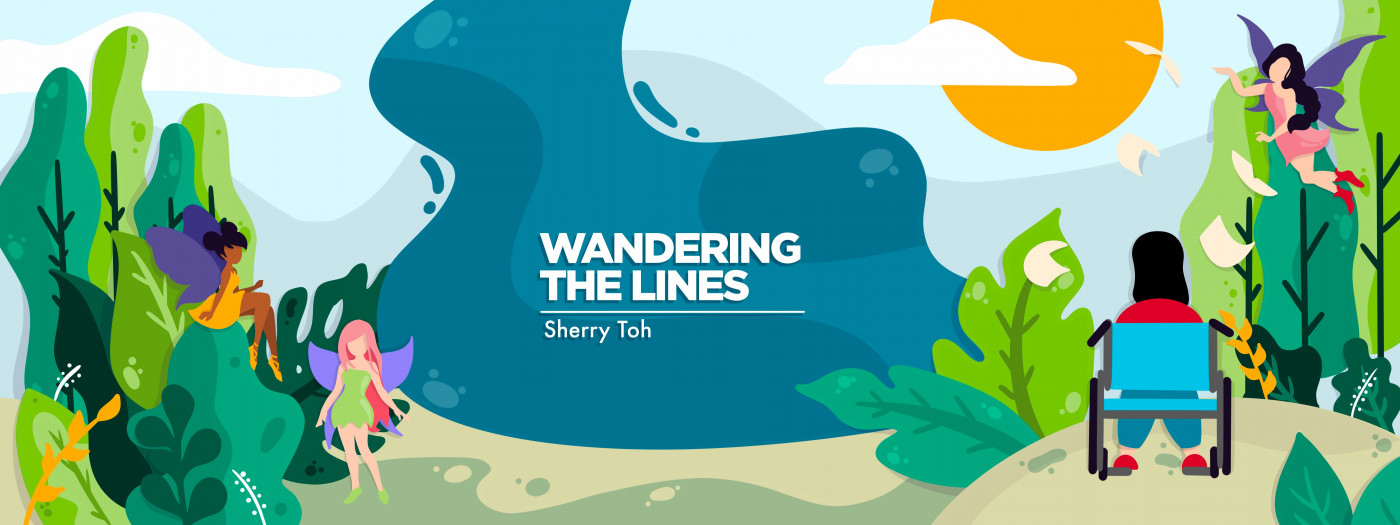The Intersection of Friendship and SMA: An Interview With Columnist Brianna Albers

SMA Awareness Month is upon us! To celebrate and remind everyone that raising awareness includes talking about our daily lives and relationships, I’m honored my best friend, Brianna Albers, said yes to the crazy idea of us interviewing and challenging each other publicly. Please read her interview with me in her latest column if you haven’t already.
While my questions to her focus on the benefits of building international and intersectional relationships, her questions to me focus on advocacy and mutual transformation.
Excerpts of our conversation follow:
ST: From what you’ve heard of Singapore, and our disability care from me, is there anything Singaporeans have that you think would benefit people with SMA in Minnesota?
BA: Healthcare in the U.S. is literally hellish. I’ve loved getting to hear about disability care in Singapore because, while there are disparities (you not having access to treatment, for example), it’s really shown me changes that are possible. Take caregiving: Singapore has a great system in place complete with public financial assistance. I would love to see something similar implemented in the U.S.
We’ve both been vocal about the need for intersectional allyship in SMA advocacy. But I’ve never asked you how meeting me, a queer Singaporean Chinese person, challenged the way you define SMA allyship as a white American woman. How did you define the term before and after meeting me?
I wasn’t expecting to meet someone with SMA on Facebook. When I reached out, it was purely out of curiosity. What are the odds of meeting someone with your exact type of rare disease in a relatively small, niche Facebook group?
My lack of participation in the broader SMA community kept me from understanding just how U.S.-centric advocacy organizations are. I hate that you couldn’t access treatments such as Evrysdi (risdiplam). I hate that your opportunities for engagement were limited simply because of where you live. It opened my eyes to how much of the community we overlook, and the ways we could better serve folks.
Saps that we are, we’ve talked about the importance of our friendship in numerous columns. As it’s an international, intercultural friendship built through SMA, were you surprised we had more than SMA in common? What are some examples? Do you recommend international SMA friendships?
Growing up, I was reluctant to befriend people with disabilities because I felt it “said” something about me. If I could go back in time, I’d tell myself that having disabled friends would improve my quality of life by, like, a thousand. You’ve taught me so much about myself just by validating my experiences. Not to mention all the aspects of disability advocacy you introduced me to!
I knew we’d get along by virtue of similar life experiences. But I never could have predicted how alike we are, from our taste in literature to our love of villainous men. Our shared diagnosis has certainly contributed to the strength of our friendship, but I think, more than anything, it comes down to our appreciation of each other’s similarities and differences. International friendships are incredible because they expand our horizons while simultaneously reflecting our shared humanity.
You’ve been the Wonder Woman of wingwomen by helping me decide to confess my feelings to my partner. Yet you’re single — and not exactly by choice. Gender norms can affect what people look for in romance, and most women we’ve seen in interabled couples are in the role of a nondisabled caregiver, including my partner. How do you feel about that, as a woman with SMA looking for a guy who can take on that caregiver role? What advice would you give young women with SMA who feel similarly?
I know my worth — and even if I didn’t, I would have you and my other beloved friends to remind me. But it’s exhausting having to circle the same problem over and over again. It’s exhausting having to forcibly make room for myself in a world that doesn’t see the truth of me.
For those struggling similarly, I have two things to say. One: There are so many disabled women in relationships. You just don’t see it, because they’re not lauded as breaking barriers. Two: The best thing you can do is befriend your singleness. People act like spinsterhood is the worst thing imaginable. Reject that. Reframe it as a choice. You are waiting for the right person because you refuse to settle.
To end on a light note, do you, the Brie cheese to my Sherry wine, identify with the foodstuff you’re named after? How so?
Can you believe I’ve never had brie cheese? I can’t. But I identify with cheese of all kinds. Some might go so far as to call it the love of my life.
Note: SMA News Today is strictly a news and information website about the disease. It does not provide medical advice, diagnosis, or treatment. This content is not intended to be a substitute for professional medical advice, diagnosis, or treatment. Always seek the advice of your physician or other qualified health provider with any questions you may have regarding a medical condition. Never disregard professional medical advice or delay in seeking it because of something you have read on this website. The opinions expressed in this column are not those of SMA News Today or its parent company, Bionews, and are intended to spark discussion about issues pertaining to spinal muscular atrophy.









Leave a comment
Fill in the required fields to post. Your email address will not be published.